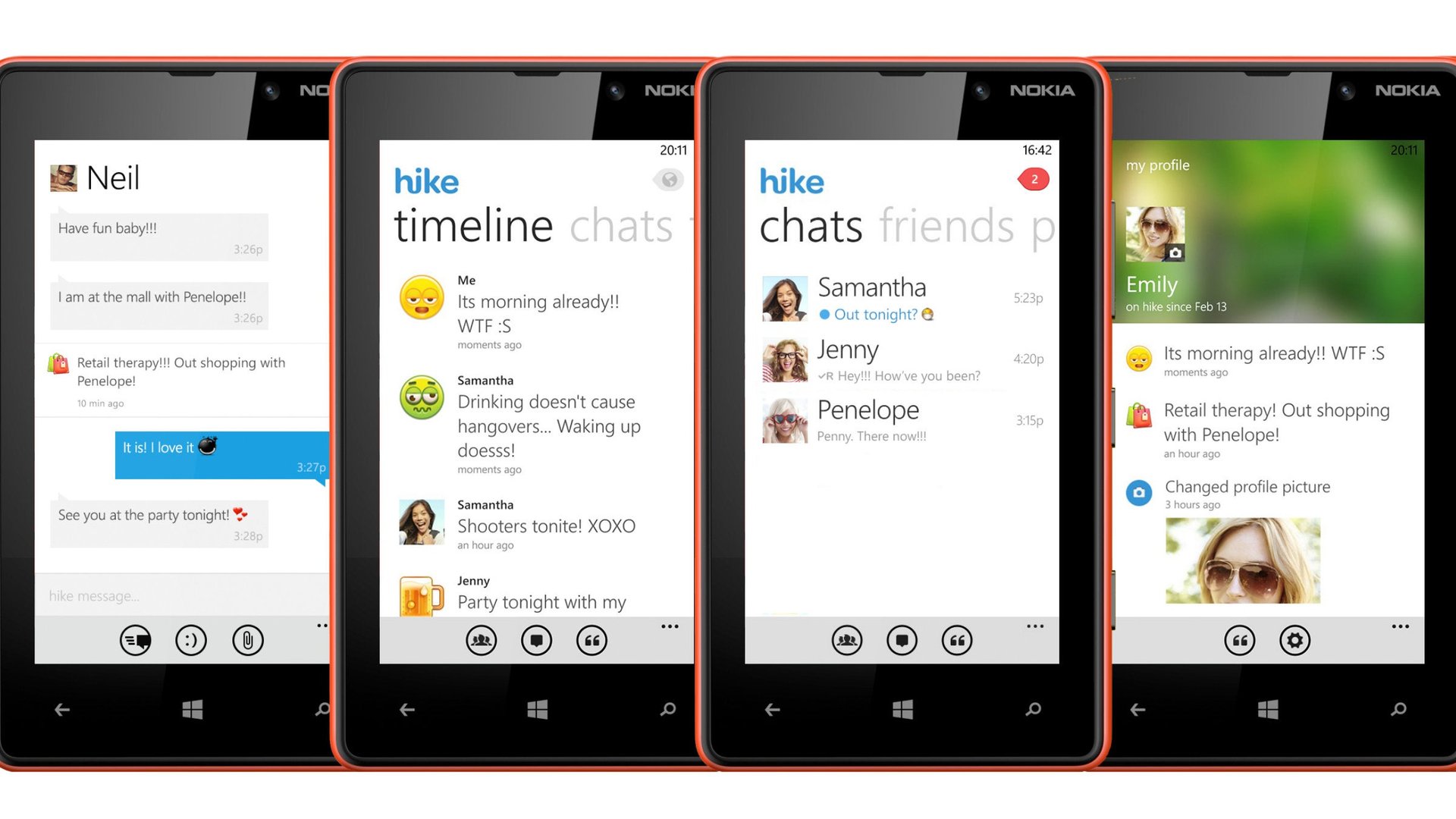Hike, the messaging app you can use even if you can’t use apps
This item has been corrected.


This item has been corrected.
We reported earlier this week that WeChat has its eye on India. On the face of it, that would seem to make sense—WeChat, owned by China’s Tencent, is the world’s biggest messaging app, and India is the world’s second-largest mobile market.
But WeChat only works on smartphones, which in India are dismally rare: In a country with over 860 million registered connections (pdf), only an estimated 40 million own smartphones. (China, according to one recent estimate, has over five times as many.) Half of them don’t have a data connection. And even those who do have one come and go at an alarmingly high rate—some 823 million of India’s cellphone subscribers use pre-paid connections.
The Indian market for messaging apps, then, shrinks from several hundred million to just a handful of millions. And WeChat isn’t the only one vying for their attention. WhatsApp and Blackberry Messenger are already popular in India, and spreading.
Yet Kavin Mittal, a young Indian entrepreneur, believes there is space for one more. His start-up messaging app, Hike, went live in December. Mittal says it already has 5 million users, with about 60% of them from India and the rest from Germany, the Middle East and elsewhere.
Mittal’s optimism is better informed than most entrepreneurs. His start-up is one of four backed by BhartiSoftBank (BSB), a joint venture between Bharti Enterprises, the owner of India’s biggest—and among the world’s largest—mobile operators, and SoftBank, a giant Japanese telecoms company. He is also the head of strategy and product development at BSB, which has put $7 million into Hike. Oh, and he’s 25. (He is also the son of Sunil Mittal, Bharti’s chairman.)

Hike has the usual bells and whistles you would expect from a recently launched messaging app—a clean interface, the ability to broadcast messages to both a large and a small group of friends, and free messaging. More importantly, it allows phone users who don’t have the app to take part in group chats with those who do, via ordinary text messages. Even though text messages make up only 20% of Hike’s traffic, Mittal says this feature makes Hike that much more useful in a country like India, where people with smartphones and data connections often have several friends with neither.
The aim for Hike, says Mittal, is to bring it to 10 million monthly users, at which point it will seek outside funding to continue to grow. Even at that size, though, Hike will remain a minnow in global messaging apps. WeChat has 300 million users, 260 million of those in China. WhatsApp has 200 million users who send roughly 20 billion messages a day. By contrast, Hike’s 5 million users send under 1 billion messages a month.
Mittal says he has something his competitors do not, which is a plan to make money from the service. “We’re bulding a feature where you can tag movies, you can play a trailer and see the poster so that messaging becomes much more contextual,” Mittal said. In film-obsessed India, he thinks movie marketers will pay Hike for such a service. Mittal also wants to take advantage of incorporating mobile “value added services”, such as ringtones, stock checks, weather, and so on—which are traditionally sold through SMS—into the app. Bharti Airtel, one of BSB’s parents, has been experimenting with different methods of selling such services for a while. As India’s mobile market matures, Hike may be well placed to take advantage of it.
Correction (Apr 25): An earlier version of this article incorrectly referred to Bharti Enterprises as Bharti Airtel, which is a subsidiary. It also said Hike users send 1 billion messages every day instead of every month. Apologies.